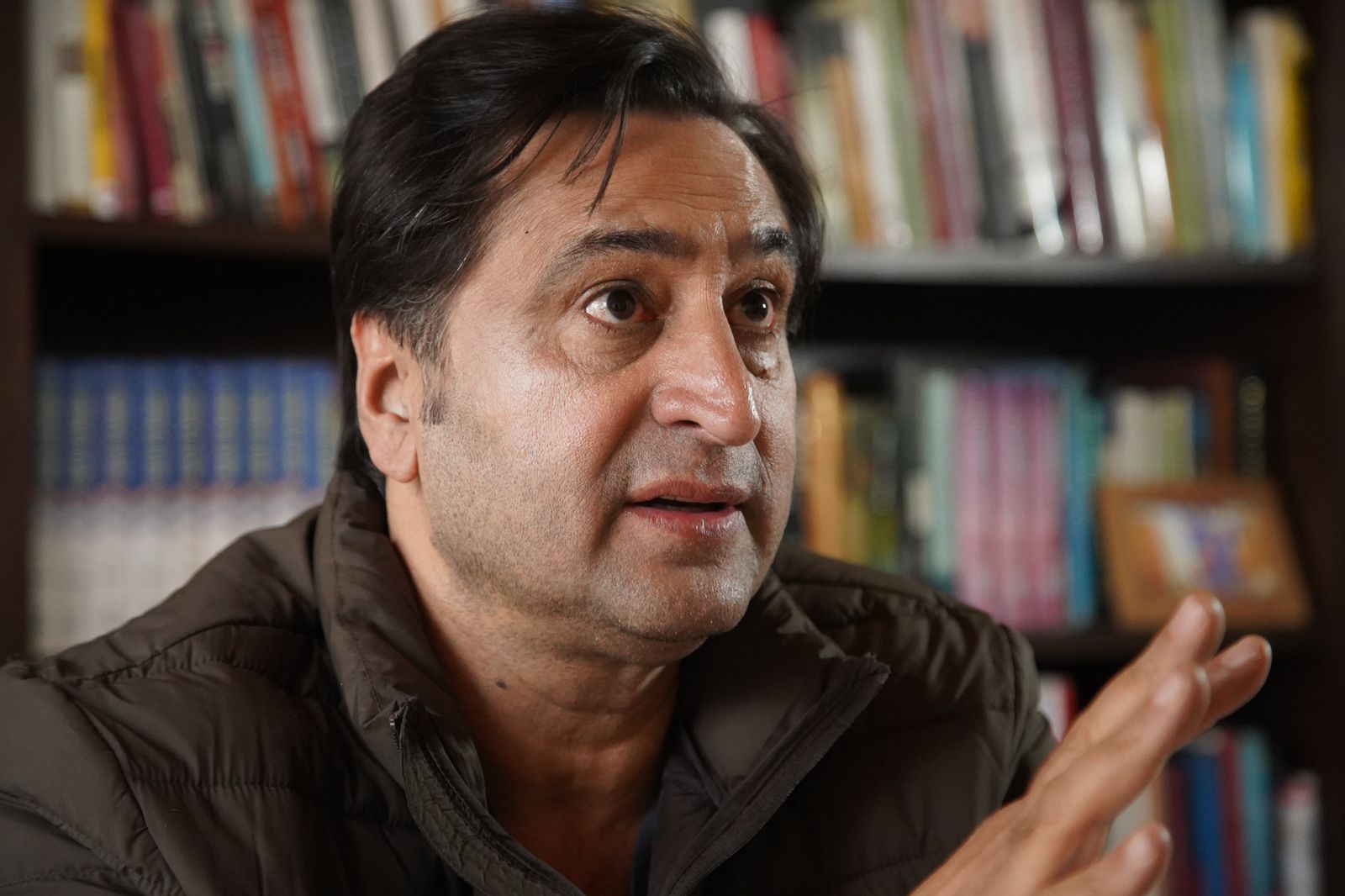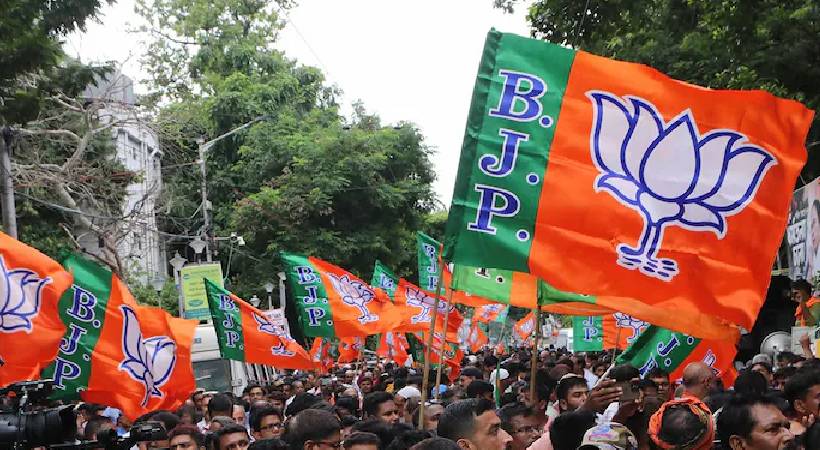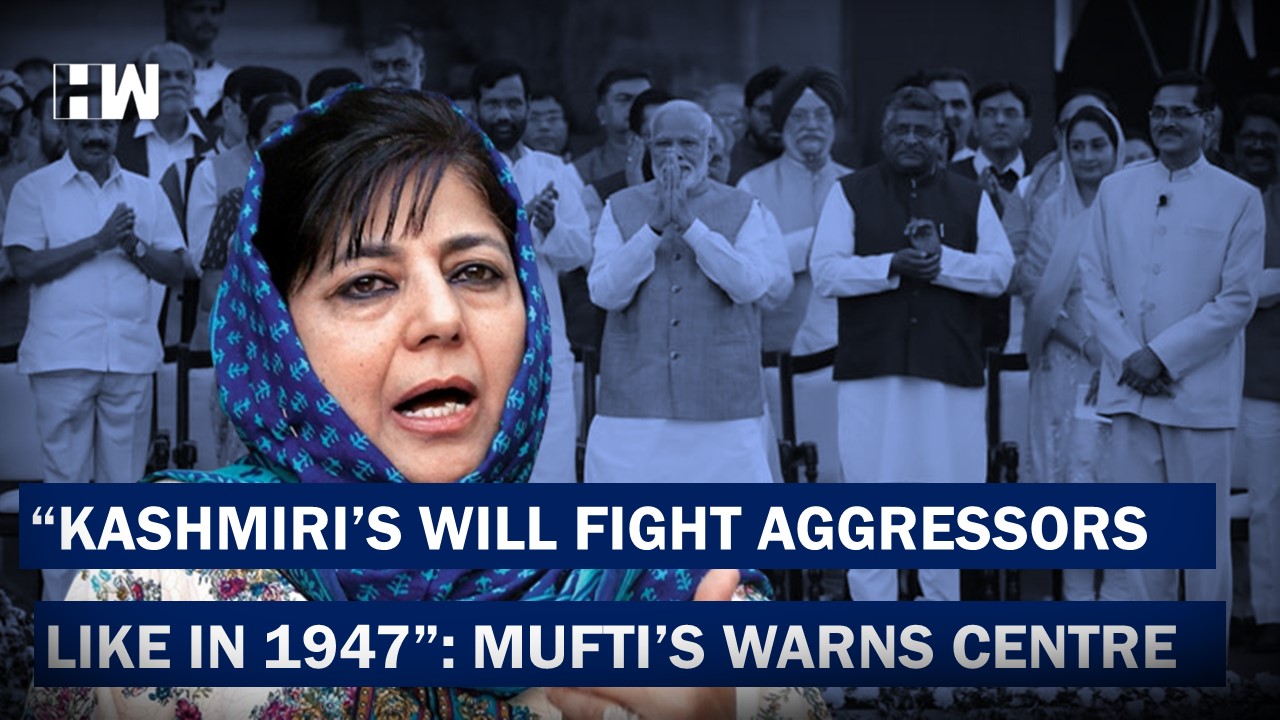Sajad Lone Slams Omar Abdullah: The Spark That Reignited Kashmir’s Reservation Debate
By: Javid Amin | Srinagar | 26 June 2025
The political atmosphere in Jammu & Kashmir has once again turned volatile—this time over a deeply emotional and complex issue: reservation versus open merit.
What began as a conversation on fair representation has exploded into a fiery political battle between two key leaders of the region: Sajad Gani Lone, chairman of the Jammu and Kashmir People’s Conference, and Omar Abdullah, Chief Minister and head of the National Conference.
A Viral Clip and a Loud Allegation
The latest round of confrontation began when Sajad Lone took to social media to post a snippet of Omar Abdullah’s interview. In the clip, Omar responds firmly to critics of the reservation system in J&K, defending the current structure and suggesting that attempts to disturb the existing ratio between reserved categories and open merit seats are misguided and divisive.
Sajad Lone’s reaction was swift and caustic. “Forget 370. Forget internal autonomy. We now have an Emperor,” he posted, accusing Omar of exhibiting “arrogance” and “self-righteousness.” According to Lone, Omar’s tone displayed “utter contempt for contrarian views.”
He added a more biting critique: “Who is answerable to none.”
The Core of the Controversy: Open Merit vs Reservation in J&K
At the heart of the political clash is a contentious reservation framework in Jammu & Kashmir, especially after the abrogation of Article 370 in August 2019.
Currently, only 30% of seats in professional institutions and government recruitments are available under open merit. The remaining 70% are allocated to various reserved categories: Scheduled Castes (SC), Scheduled Tribes (ST), Other Backward Classes (OBC), and socially and educationally backward groups.
The debate reignited after public demand and civil society voices began questioning whether open merit seats are being unfairly squeezed. Critics argue this affects general category students, particularly in a region where jobs and higher education seats are already limited.
Omar Abdullah has strongly defended the status quo. In his view, reservation is not a privilege but a tool for justice. He argues that undoing quotas would marginalize the historically underrepresented and deprived communities.
Sajad Lone, however, sees this as an over-centralized, politically expedient position. He questions whether a Union Territory administration even has the constitutional or legal authority to make such sweeping decisions about reservation policy.
Post-370 Power Dynamics: Can a UT Decide on Reservation?
This leads to a deeper and equally controversial debate: who has the right to decide the reservation framework in post-370 J&K?
Following the revocation of Article 370, Jammu & Kashmir was downgraded to a Union Territory with a Legislative Assembly under the J&K Reorganisation Act, 2019. Although some powers were retained by the UT government, critical areas like public order, police, and higher education are still under central oversight.
Legal experts remain divided. Some argue that reservation policies, being part of the social justice framework, can only be revised by a state government, and not a UT setup. Others believe the legislative assembly still retains the right to discuss and modify such policies, provided they follow the constitutional mandate under Articles 15 and 16.
Sajad Lone seems to fall in the first category—asserting that Omar Abdullah, by aggressively defending the reservation framework without open debate or legislative scrutiny, is acting more like an autocrat than a democratically elected leader.
The Protest Challenge: “Resign, Let’s Go to Jantar Mantar”
Lone didn’t stop at criticism. He threw down a public gauntlet. In a bold statement, he challenged Omar Abdullah:
“You really mean business? Resign. We all will resign. And sit on protest at Jantar Mantar.”
This dramatic call for collective resignation and street-level protest is meant to underline a common demand for democratic transparency, fair representation, and policy accountability.
It also revives a Kashmir-wide yearning for pre-370 levels of political autonomy, where such decisions were deliberated in the Assembly—not issued in interviews.
National Conference and Its Response
The National Conference, Omar Abdullah’s party, has responded cautiously. A senior NC leader, on the condition of anonymity, said:
“This is not the time to inflame tensions. Reservations are a social necessity. Let us discuss this in the House, not on Twitter.”
However, the party’s social media handles have been less diplomatic, accusing Lone of trying to politicize social justice for electoral gains.
Public Sentiment: Divided but Concerned
Among the public, the debate is causing ripples. Many agree that historically marginalized communities must continue to receive support. Yet, there’s growing frustration among merit-based aspirants who feel that talent is being sacrificed for vote banks.
The lack of a structured, consultative process to address this has only made the matter worse. As of now, no white paper, commission report, or legislative consultation has been presented to explain or review the reservation framework post-370.
This has created a vacuum—where populist soundbites are replacing nuanced policy dialogue.
National Implications: A Model or a Warning?
What happens in J&K is often seen as a testbed for broader national experiments. If a UT assembly begins to unilaterally revise reservation frameworks without full democratic consensus, it sets a dangerous precedent.
Could this lead to similar moves in other UTs like Delhi or Puducherry?
Or could this revive demands in other states for greater legislative checks before any reservation policy is altered?
Either way, Kashmir’s debate on merit and justice could ripple across India’s federal structure.
Political Optics: Is This the Start of 2025 Campaigning?
Some analysts believe this row isn’t just about reservation—it’s about repositioning for the next Assembly elections, possibly in 2025. With Omar Abdullah presenting himself as a progressive statesman and Sajad Lone styling himself as a principled dissenter, the stage is being set for a two-pronged leadership battle.
This controversy has handed both leaders a rallying cry—Omar for social justice, Lone for democratic clarity.
The real question is: Will this lead to better policymaking or just more polarization?
Bottom-Line: The Emperor vs The Challenger
As Sajad Lone slams Omar Abdullah, what we are witnessing is more than a political spat. It is a crisis of confidence in how Jammu & Kashmir is being governed in the post-Article 370 era.
Both leaders raise important points:
- Omar: Social justice is non-negotiable.
- Lone: Transparency and democratic consensus are equally non-negotiable.
As Kashmir stands at this political and ideological crossroads, the people deserve more than interviews and tweets. They deserve a serious, participatory conversation about their future.



